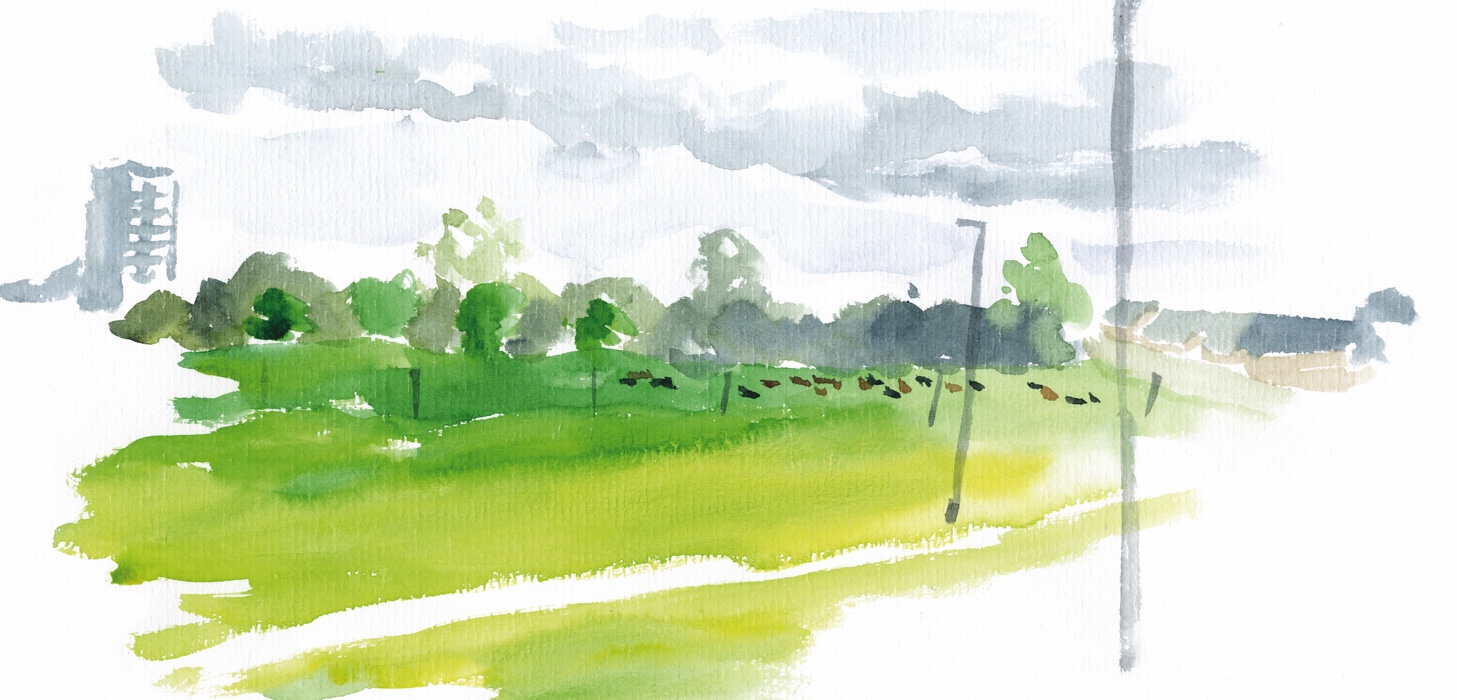Current Challenge Labs
Science and Writing: Carbon, Life and the Biosphere
A Creative Writing Challenge Lab
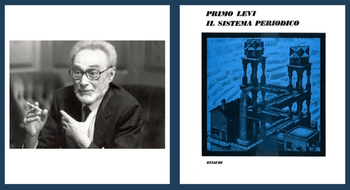
Storytelling in the face of the climate emergency
This creative writing workshop aims to bring together natural scientists and humanities scholars from Newcastle University, lecturers and students (undergraduate and postgraduate) alike. It is an invitation to revisit Primo Levi’s famous story Il sistema periodico [The Periodic Table, 1975] nearly 50 years after it was written and to discuss its narrative structure, its scientific implications, and its historical background. As we do this, we will engage collaboratively in the creative task of imagining what narrative path(s) the carbon chapter might take if it were being written in the present, under the conditions of climate emergency and anthropogenic earth systems changes.
Primo Levi’s autobiographical novel Il sistema periodico (The Periodic Table, 1975) has often been regarded as the best literary science book ever written. Its final chapter, ‘Carbon’, is the most celebrated of the 21 chapters, each one featuring an element from the periodic table that Levi relates to specific phases of his life. ‘Carbon’ tells the life story of a carbon atom that had been locked in a limestone for hundreds of millions of years before it was released during quarry works in the 1840s. The carbon atom works its way through several plants and animals, circles the Earth numerous times and ends up in a glass of milk that the author himself is drinking while writing the very chapter we are reading. The carbon atom enters his bloodstream and the brain cell that finally leads his pen when he puts the full stop on the page that concludes the book.
The carbon atom is a literary hero with minimal qualities. And yet, it becomes the central agent of life, perpetually traversing the boundary between the biotic and the abiotic. In doing so, it rejuvenates life. Towards the end of the chapter, Levi quips that this story is most certainly true: there are so many carbon atoms in the biosphere that any carbon life story our imagination is capable of crafting would be a true story of life.
Challenge Lab Idea
We want to take ‘Carbon’ as an inspiration to write our own carbon story in the light of the climate emergency, the second Great Acceleration since 1989, and the rise of artificial photosynthesis. In what ways have these and related transformations changed our resonance with the world and our relation to ourselves as humans? How can we write about these transformations? What narrative modes do we have at our disposal to express resonance and relatedness? In what ways can story-telling be a form of empowerment and political activism in times of ecological grief?
We will be guided and assisted by Linda France, Newcastle-based poet and environmental writer, and Professor Jens Söntgen, chemist and philosopher, director of the Environmental Science Centre of Augsburg University (Germany). Jens Soentgen is a philosopher, chemist, and Academic Director of the Environmental Science Center at the University of Augsburg. Since 2016, he has been an adjunct professor of philosophy at Memorial University in St. John’s, Canada and, since 2012, Co-editor of the journal GAIA – Ecological Perspectives for Science and Society. Soentgen’s writing on the history and theory of chemistry, as well as on the specifics of individual materials, has been published widely both for the scientific community and for young readers.
This is an event by the Decisive Decade initiative, hosted by the Newcastle University Humanities Research Centre (NUHRI) and the Anthropocene Research Group. For more information, contact Philippa Page and/or Bernhard Malkmus.
Timeline
This creative-critical Challenge Lab will take place during Semester 2. It will take the form of 3 workshops: 1) to introduce Primo Levi and The Periodic Table from different disciplinary perspectives; 2) to come together to share ideas as to how the narrative of ‘Carbon’ might be reimagined in the present; 3) to co-author and create our own found-object cartonera editions of these new carbon stories with a view to sharing them during NCL Europe’s week of activities around Europe Day on 9th May.
The term ‘cartonera’ comes from the Spanish word ‘cartón’, meaning cardboard and ‘cartonero’ referring to a person who collects discarded materials for recycling. The cartoneros emerged in particular in the wake of the 2001 economic, social and political crisis in Argentina. The cartonera publishing house Eloisa Cartonera was set up at this time as an alternative publisher, making books out of the materials recovered by the cartoneros.
The Chinese Independent Film Archive (CIFA)
Challenge Lab & Screening Series
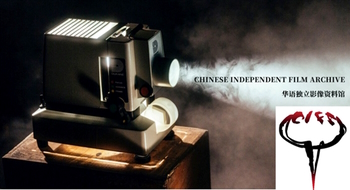
The Chinese Independent Film Archive (CIFA) is the fruit of a three-year Arts and Humanities Research Council UK funded project entitled “Independent Cinema in China: State, Market and Film Culture”. Scheduled to launch in September 2023, the archive will be the world's only film archive dedicated to the preservation of, and access to, Chinese independent film culture. CIFA holds a large and rare collection of films and raw footage, along with materials associated with this audio-visual collection. It also houses existing publications on Chinese independent cinema in both English and Chinese, and an oral history archive related to Chinese independent film production.
The archive provides a unique and invaluable set of primary sources for teaching and researching contemporary China. It opens up a window onto China’s culture, society and politics for academic communities, industry partners and the general public alike. CIFA's collections cover a wide range of themes and challenges facing Chinese society and the world at large, including the urban-rural divide, social injustice, LGBTQ, feminism, environmental pollution, to name but a few. Through the curation of screenings, exhibitions and symposia, academic publications, creative productions and educational activities, CIFA aims to build bridges between academia, industry and the public, to ensure the legacy of Chinese independent cinema, and contribute to its future development.
The archive will be based in the School of Modern Languages and will continue to operate with the support of Newcastle University. Our mission is to support China-related research, film production and heritage studies, and to facilitate interdisciplinary and collaborative projects across the university.
Challenge Lab Idea
This Challenge Lab invites students to engage with the archive to work collaboratively on small research projects. Students will be asked to give a short presentation of their research projects, perhaps with some sort of visual exhibition of their findings, as part of the CIFA official launch in September. Students will have the opportunity to meet filmmakers during the launch and to help showcase the wide-ranging archive that will be a unique resource for education and research, located in Newcastle.
Indicative Timeline
- o Introduction to the archive for students interested in applying to the Challenge Lab.
- o Students who are interested apply with a statement of topics that most interest them.
- o Lydia Wu will meet with students to help orient them with the CIFA catalogue.
- o Students work with Lydia and Sabrina on their presentations for the CIFA official launch in September.
Film-Debate Series
In order to raise visibility of the archive among research clusters, groups and NUCoREs, NUHRI will facilitate a series of screenings and post-screening discussions in collaboration with the Chinese Independent Film Archive and the Humanities and Social Sciences Faculty Research Groups. CIFA has proposed the following films as of potential interest to the following FRGs:
- Anthropocene FRG and NUCoRE on Environmental Resilience: Beijing Besieged by Waste (Wang Jiuliang, 2011) https://www.chinaindiefilm.org/films/beijing-besieged-by-waste/
- Gender and Sexuality FRG: Shanghai Panic (Cheng Yusu, 2000) https://www.chinaindiefilm.org/films/shanghai-panic/
- Mama Rainbow (Fan Popo, 2012) https://www.chinaindiefilm.org/films/mama-rainbow/
- NUCoRE for Researching Cities: Yumen (JP Sniadecki, Xu Ruotao, Huang Xiang, 2013) https://www.chinaindiefilm.org/films/yumen/
- NUCoRE for Children and Youth: Children at a Village School (Jiang Nengjie, 2014), https://www.chinaindiefilm.org/films/children-at-a-village-school/
Unlocking North-East Jewish Heritage
Tyne and Wear Archives & Museums (TWAM) placement
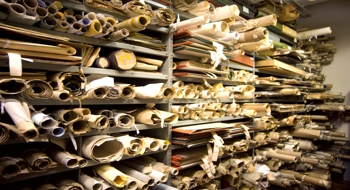
The Humanities Research Institute and Tyne & Wear Archives and Museum service (TWAM) and are working together to carry out research into the history of the regions Jewish communities. The project aims to share the stories of the these communities, and broaden engagement with the Jewish history of the region. The project is currently working to identify and digitise the wide range of material held in archival collections across the region in order to provide online access to the public. An innovative location based online resource will be developed to allow this content, and the stories that they tell, to be shared and understood in their geographic and social contexts. The Institute and the Careers Service are funding an internship that will work alongside TWAM explore the archive and report on the findings of the project.
Reading during the pandemic
A Pandemic focused Challenge Lab.
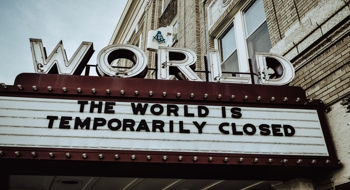
The Pandemic had a profound effect on all of us, forcing all of us into making radical changes to all aspects of our lives. We were all confronted with having to change the way we worked, socialised, interacted and spent our leisure hours as a result of the lockdowns imposed to control the spread of the virus.
Dr Jennifer Arnold conducted research during the lockdowns on peoples attitudes to reading and literature and collected a moving testimony of how peoples attitudes to books and stories was impacted. The resulting information was a moving tapestry of testimonies from people from all around the world about how reading and literature helped them to cope and deal with the difficulties of living life in isolation. Dr Arnold is now working with Newcastle University artists to turn these testimonies into a piece of art that will take the form of a soundscape that will bring the research to life and provide a lasting testament to the difficulties we faced as a society during, what was for many, a traumatic period.
Dr Jennifer Arnold conducted research during the lockdowns on peoples attitudes to reading and literature and collected a moving testimony of how peoples attitudes to books and stories was impacted. The resulting information was a moving tapestry of testimonies from people from all around the world about how reading and literature helped them to cope and deal with the difficulties of living life in isolation. Dr Arnold is now working with Newcastle University artists to turn these testimonies into a piece of art that will take the form of a soundscape that will bring the research to life and provide a lasting testament to the difficulties we faced as a society during, what was for many, a traumatic period.For more information please contact Dr Jennifer Arnold
Media Innovation Labs (MILs) for Transcultural Communication (between home/international students)
A Media focused Challenge Lab.
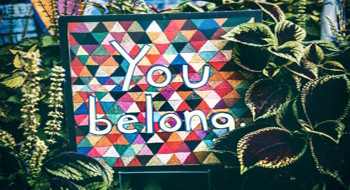
This project aims to understand “what role can culture play in easing the transition of international students to studying in the UK?”. The project will be co-designed by the staff team and our home/international students, which encourages and supports home and international students to interact with each other in order to promote transcultural communication and ease the transition that international students experience when they study abroad for the first time through co-creating content for an app. Students will participate in and lead four Media Innovation Labs (MILs) to develop content for an app by creating and producing different content such as games/movies/mini-videos/articles/images/handcrafts to represent their experience at both home and abroad. They will also develop their innovation and creativity skills to set up different sections and functions for the app to promote interactions as they like. At the end of the project, students will have developed a range of life, social skills and technical skills.
For more information, please contact Sharon Zheng
Newcastle Environmental History
An Environment focused Challenge Lab.

The environment and climate change is seldom out of the news and the politics of tackling climate changes are embedded right across the political spectrum. There is considerable debate about how humanity can best tackle climate change and safeguard the natural environment for generations to come. Many of the problems we face now trace their roots back to the rapid industrialisation that took place during the 19th Century, a period when Tyneside was undergoing rapid economic changes as industries developed along the banks of the river from Elswick in the west to the mouth of river in the east. These changes brought about considerable environmental harm in the form of air pollution and the fouling of the river Tyne but what were the attitudes of people at the time? Were people concerned then as we are now or was the depredation of the environment simply accepted as a price for economic advancement?
Working with the Tyne and Wear Archives and Museums service, Dr Shane McCorristine led a group of students and delved into the local archives to try and get a glimpse of how our Victorian ancestors viewed the environment. You can read a little about what they discovered in Seren Hammers paper below where she talks about how Victorians looked at the environment through the lens of public health and took measures to mitigate against the problems caused by urbanisation and industrialisation.
For more information, please contact Dr Shane McCorristine
Textured Translation
A Creative and Interdisciplinary Approach to Translation

An Interdisciplinary Collaborative Approach to Translation
This challenge lab aims to bring together students from Translation Studies and from English Literature to share their knowledge and expertise to produce a translation of the prologue written by Argentinian writer Cesar Aira to his translation of Shakespeare’s Cymbeline. Loosely based on the Poettrios experiment, in which translations are produced collaboratively with the input of author, language advisor and target language poets, Textured Translations consists of a series of workshops in which our subject-expert students will consolidate their knowledge of the play, of the role of the prologue, and of Cesar Aira’s translation, while our translation-expert students work focus on the language-specific elements of the source text to produce a draft-version of the prologue in English. The two groups then came together to share their expertise and work collaboratively to produce a final version. The challenge lab explored translation as a multi-layered, multifaceted process which can be enhanced through collaborative working, with the participation and input from other disciplines.
Read our translation of Aira's prologue Read our reflection on the process